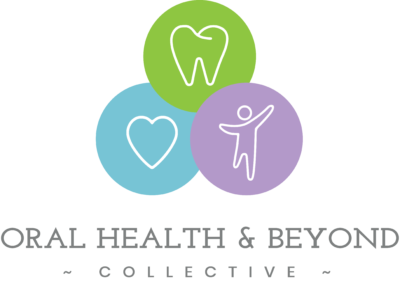Oral health for Mums in May
Mums, take time out to care for you, in Women’s Oral Health Month
Taking care of your family and running the house, often whilst holding down a job, are all in a day’s work for any mum. Often your own needs are put on the back burner, but did you know that your teeth and gums undergo changes during certain stages of your life, such as pregnancy, motherhood and the menopause? It’s important to take time out to care for you, and as May features both Mother’s Day and Women’s Oral Health Month, there’s no better time than the present!
As a woman, what do I need to know about oral health?
During certain points of your reproductive lifecycle, a woman’s body undergoes hormonal and physical changes that impact on all sorts of areas, including the teeth and gums. The key stages when oral health issues may occur are:
·Puberty. During this period of a young woman’s life, puberty gingivitis is common. The production of extra hormones causes more blood to flow to the gums, increasing their sensitivity and potentially causing swelling and bleeding
·Pregnancy. Almost every fibre of your body undergoes changes and shifting focus, so it’s not surprising to learn that an expectant mum’s oral health can experience a range of conditions including: gingivitis, ‘pregnancy tumours’ (harmless red, lumpy lesions on the gums), acidic damage to teeth resulting from morning sickness, and a dry mouth
·Menopause. Another time of monumental hormonal changes and a woman’s body can experience inflamed gums, altered taste sensations, and a dry mouth. Osteoporosis can also cause the jawbone to recede, leading to gum shrinkage and possibly tooth loss
How can I prevent problems with my teeth and gums?
As you’ll already know, establishing a comprehensive regular routine of brushing twice a day and flossing once a day is always recommended, regardless of your gender or stage of life. Your dentist also recommends eating healthily and drinking lots of water, along with maintaining twice-yearly professional exam and cleans. Of course, if you become aware of any unusual symptoms in your mouth, it’s always advisable to speak with your dentist for advice, reassurance, and treatment where appropriate.
During pregnancy, morning sickness may strike. Unpleasant as it is, we recommend that you do not brush your teeth immediately after being sick, as this can cause more damage to the teeth by removing the protective enamel. Good alternatives are to rinse out your mouth with a solution made up of a quarter of a teaspoon of baking soda dissolved in warm water, chew sugar-free gum, or drink milk. You might also be unaware that a possible side effect of oral contraception is gingivitis, and that HRT medication can also have an impact on your oral health and wellbeing, so speak with your dentist if you experience any concerns.
What are my options for managing oral health?
Your dentist will always discuss your individual circumstances and preferences, tailoring a treatment plan to suit your needs. Whilst these may change at different points of your life, the personal care and attention given to you by your dentist will not, so please do feel free to seek further advice if you experience any problems with your oral health.
To learn more about how your teeth and gums change through the years, why not download our handy free guide to Women’s Oral Health?

Would you like more information on KIDS dental care? Please complete this form and one of our friendly team will get in touch with you.



